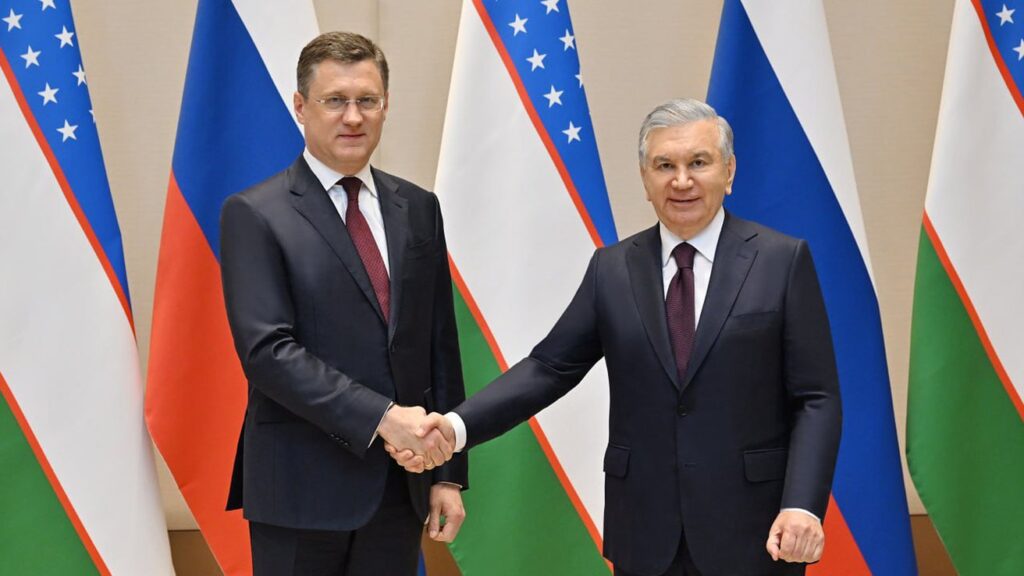TASHKENT (Realist English). Russia’s Deputy Prime Minister Alexander Novak concluded a working visit to Uzbekistan on June 10, where he met with President Shavkat Mirziyoyev and addressed the plenary session of the IV Tashkent International Investment Forum. The visit underscored Moscow’s intent to deepen cooperation across energy, finance, and high-tech industries with one of its key partners in Central Asia.
During talks with President Mirziyoyev, Novak highlighted the strength of the strategic partnership between the two countries, built on “equality, mutual respect, and consideration of each other’s interests.” He praised Uzbekistan’s ongoing economic reforms and rising regional influence, calling the country “a dynamic force in the Eurasian space.”
At the investment forum, Novak noted that Russian companies have signed over $5 billion worth of investment agreements at the forum over the past three years. He emphasized that Asian markets remain Russia’s top trade priority, pointing to the doubling of bilateral trade volume with Uzbekistan over the past four years to over $10 billion. Presidents Vladimir Putin and Shavkat Mirziyoyev have set an ambitious goal to triple that figure to $30 billion in the coming years.
Novak highlighted Russia’s economic resilience, stating that despite geopolitical pressure, the Russian economy grew by 4.3% in 2024—well above the global average—with investment growth of 18% over two years.
“Russia remains a major global trade actor, expanding its logistical and geographical reach,” Novak said. “Our focus is on deepening ties with Asia, the Middle East, Africa, and Latin America through integration based on sovereign equality and mutual respect.”
He positioned Russia as an open, globally integrated economy—the fourth largest in the world—and an active member of key international organizations and major cooperative projects.
Novak also proposed comprehensive industrial partnerships with foreign nations, including full-cycle production chains, workforce training, localized manufacturing, and engineering support. “This format enables long-term collaboration, enhances the resilience of our companies, and establishes deep, future-oriented ties between states,” he said.
The Tashkent forum attracted government delegations, investors, and business leaders from across Eurasia. Russia’s participation signals a continued pivot toward Eurasian economic integration as Western ties remain limited.
